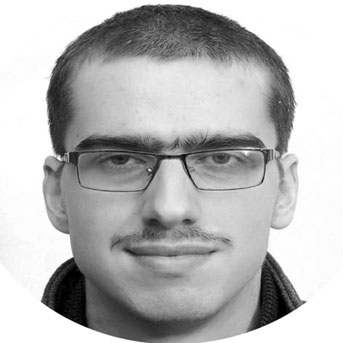Shahzeb Khan
THE world celebrated the international day of the elderly on October 1st. Elderly people are valu
able, among other things, because of the information they carry about the past. In traditional societies, elders hold great value because they accumulated a great deal of knowledge in their lives. In the modern world, we hold them in much less regard as we live in a constantly changing world, focused on the new and the latest. However, the world is learning to harvest the wisdom and memory of the elders as valuable knowledge. The researching of history by talking to people about their historical experience has become an important part of historical research at the grass roots. It is formally known as Oral History Research. The developed world is way ahead of us in Oral History Research. When I looked up oral history research on Google, I got15 million results. All concerned western countries. When I looked up oral history research in Pakistan, I got two results. These were about a single organization, the Citizens Archive of Pakistan, whose projects seemed focused on urban educated elites. Oral history research is absent in remote or impoverished rural villages. Where literacy rate there is low, oral tradition is the foremost way of record keeping. We must begin stream lining such knowledge through oral history research. Thus I advise young students to always ask the elderly of their experience of living during important events.
Traditional knowledge is worth centuries of research. Medicinal properties of a local herb, for instance, are useful knowledge for any society. An example of the importance of traditional knowledge relates to natural disaster management. One disaster where this is demonstrated most clearly is the Indian Ocean tsunami of December 26,2004, which killed 300,000 people. The worst affected area was the bustling, cosmopolitan Indonesian city of Aceh, which lay close to the epicentre of the tsunami. 170,000 people died in Aceh during the 2004 Tsunami. The city had no idea that a tsunami was going to come after the earthquake and many people even went down to the beach to pick up stranded fish when they saw the ocean waters retreating, which heralds a tsunami. But on the island of Simeleue, a rural, traditional society which lay closer to the epicentre, only six of the 70,000 inhabitants died. This was because the elders remembered past experiences of tsunamis occurring after earthquakes and warned everybody around to run for higher ground when the sea started to recede. Elderly people in Aceh were evidently either more marginalized or fewer elders lived in the same place all their lives.
To give another example, in 1945, the shoreline of what is now Pakistan suffered a major earthquake which caused a tsunami. As stated, people can survive such tsunamis by immediately running to high ground as soon as they feel an earthquake, but it appears that in tremors that have been felt on Pakistan’s coastal areas since 1945, people have usually not done so. I was one of them. I was in a seaside restaurant in Karachi when I felt the Awaran earthquake in 2013, but I was not aware of the possible tsunami danger and no tsunami warning was disseminated in the restaurant or even, I learned later, in the five-star hotel that I was staying in. People in the well-to-do and educated segments of society can simply learn about the danger from reading about tsunamis. But for people who live in the impoverished and remote coastal villages of Pakistan, often with no access to education, the best way to remain informed is for their elders to keep them well-lectured on the calamity that occurred 72 years ago, that left in its aftermath the lesson that a tremor can be the herald of a tsunami plus the know-how to survive the calamity. When somebody has lived to an exceptionally old age, another area of knowledge he or she can provide us is how the person managed to live so long. The basic secret behind longevity is good health, An account of every little habit an exceptionally old person maintained over his or her lifetime can yield more advice than any scientific research.
It is pertinent to mention here the historic old, such as Emma Morano, who passed away on 18 April 2017 at the age of 117. With her death, the world lost its last living link to the 19th century. Emma Morano was born on November 29, 1899. The world no longer has anybody whose birth date is in the 1800s. Emma Morano, born in a year when the Boer War was occurring and the first radio signal across the English Channel was sent, lived to remember the Balkan Wars, World War 1, the Great Depression, World War 2, the Korean War, the Space Race, the Vietnam War, the fall of the Berlin Wall, 9-11, and the Iraq War and lived to see Donald Trump become the President of the United States. Jeanne Calment is another oldest verified person in history, whose 122-year long life spanned from 1875, when America’s Reconstruction from the Civil War was ongoing (just four years after the end of the last Napoleonic Empire), to 1977, when Clinton was sworn in to a second term as POTUS. Emma was asked the secret of her long life. She said it was eating two raw eggs a day and thinking positively about the future. Tips can vary as much as snowflakes vary from each other. We often regret it when the person in our family who could have told us so much dies without doing so. Such a loss applies to a civilization also. Pakistan’s universities should start oral history research studies and maintain archives to enrich study of our history. NADRA should maintain a database of exceptionally old people. Their lives and their experiences should be honoured by authorities and archived in libraries especially dedicated to the purpose.
—The writer is Director at Pakistan’s People Led Disaster Management.










